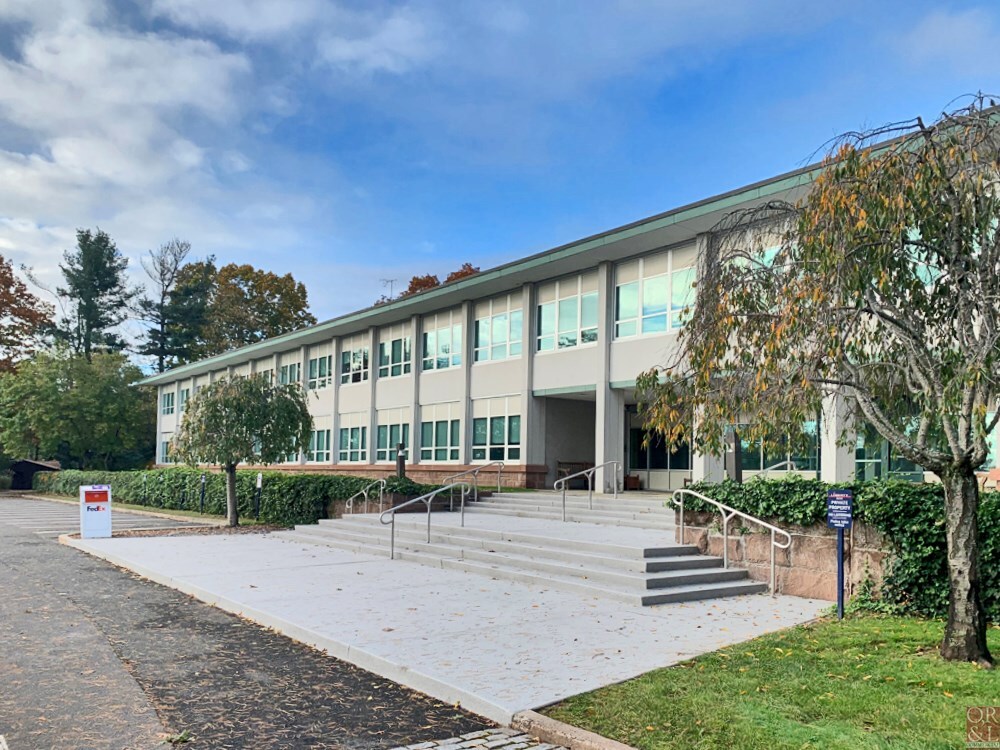
c/o LoopNet
In a meeting with the University’s Finance Committee and the Student Employment Advisory Subcommittee (SEAC) of the Wesleyan Student Assembly (WSA) on Tuesday, Dec. 5, a representative from the Gordon Career Center said that University administrators will meet Friday, Dec. 8, to discuss the potential campus-wide implementation of the divisive online employee confirmation system E-Verify.
E-Verify is a federally managed online database that allows employers to check the information provided by an employee’s I-9 form with immigration records held by the Department of Homeland Security. In the meeting, according to WSA Senators Ruby Clarke ’24 and Ronald Ceesay ’27, the representative said that the University has until Friday, Dec. 15 to make a final decision on the platform’s implementation—a remarkably fast timeline.
The program, which was created by the Illegal Immigration Reform and Immigrant Responsibility Act of 1996, was initially introduced as a voluntary pilot program designed to prevent undocumented immigrants from working within the United States. Since then, its usage has been mandated for all employers in nine states and all federal agencies and contractors nationwide. However, Connecticut state law does not require its usage by any employers.
Proponents within the administration have argued that its usage would provide a solution to the annual process that requires students to verify their physical passport or social security card with the campus payroll office in order to be approved for work-study. E-Verify would allow students to be virtually confirmed for work-study before their arrival on campus. The program, however, has faced substantial student opposition due to its alleged unreliability and increased risk for undocumented students.
Even as E-Verify was rolled out across the United States by lawmakers eager to take a hardline approach to immigration, figures began to emerge that suggest that the program was failing to identify massive portions of undocumented immigrants. According to a 2019 analysis of U.S. Citizenship and Immigration Services figures by the Cato Institute, the program correctly identified only one in six undocumented immigrants.
Furthermore, on campus, E-Verify could have far-reaching impacts beyond the scope of undocumented students’ work status.
In a letter sent to the First-Generation, Low-Income (FGLI) Advisory Board on Thursday, Dec. 7, the SEAC identified significant flaws with the system that could pose disproportionate threats to international and FGLI students.
In its letter, the SEAC argued that mismatches could occur if a payroll member were to spell the name of a student incorrectly. If mismatched, a student would be required to quickly appeal the automatic decision or risk disqualification from employment. Furthermore, it argued, undocumented students would be put at an undue risk as the system could potentially refer their immigration status to U.S. Immigration and Customs Enforcement.
The University publicly welcomes undocumented students to apply for admission, as has become the norm across the nation in recent years.
While the administration has not publicly acknowledged its aims for the meeting, it would not be the first time it adopted a controversial employment program. In 2019, it faced campuswide backlash for its adoption of Workforce, a timekeeping software program that faced opposition from both the Wesleyan United Student/Labor Action Coalition and the WSA.
If University administration agrees on Friday to begin using E-Verify, the timeline of its implementation is presently unclear.
Miles Pinsof-Berlowitz can be reached at mpinsofberlo@wesleyan.edu.
11 Comments
temp tm
Very well presented. Every quote was awesome and thanks for sharing the content. Keep sharing and keep motivating others.
uPVC pipe services in Iraq
Customers can rely on Elitepipe Plastic Factory’s technical expertise and dedicated customer support to assist them in selecting the most suitable fittings for their specific needs. Elitepipe Plastic Factory
Deb Go
interesting
Health Stay
This is my first time pay a quick visit at here and i am really happy to read everthing at one place
uPVC pipe
يمكن للعملاء الاعتماد على الخبرة الفنية لمصنع إيليت بايب Elite Pipeودعم العملاء المخصص لمساعدتهم في اختيار التركيبات الأنسب لاحتياجاتهم الخاصة.
خدمات أنابيب uPVC في العراق
يعتبر مصنع إيليت بايب Elite Pipe في العراق رائدًا صناعيًا معروفًا بالتزامه بتقديم الأنابيب والتجهيزات البلاستيكية عالية الجودة.
uPVC pipe solutions in Iraq
Elitepipe Plastic Factory’s commitment to customer satisfaction is evident in their prompt delivery schedules and exceptional after-sales service. Elitepipe Plastic Factory
Free Temp Mail
very informative articles or reviews at this time.
Temp Mail
I really like reading through a post that can make men and women think. Also, thank you for allowing me to comment!
disposable email
For the reason that the admin of this site is working, no uncertainty very quickly it will be renowned, due to its quality contents.
Restore CBD Gummies Price
Good post! We will be linking to this particularly great post on our site. Keep up the great writing